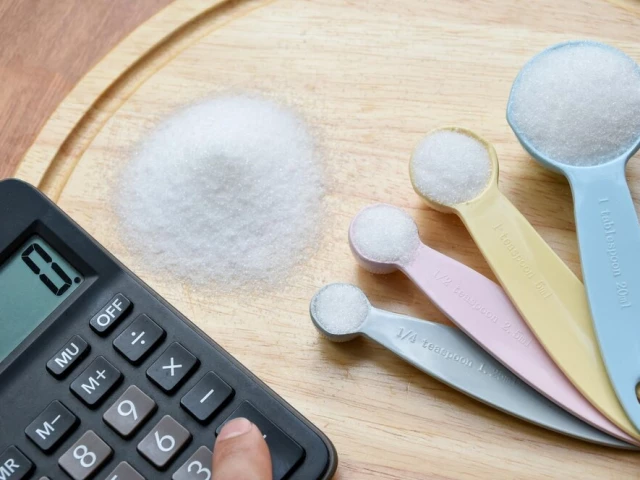Govt raises sugar price for tax
Aims to raise Rs90b as new formula hikes commodity's tax base price by 75%

The government on Tuesday fixed a new minimum sugar price for collecting sales tax, which will increase the per kilogram price by Rs10 to Rs15 while generating an additional Rs90 billion annually in taxes for authorities facing a yawning revenue shortfall.
The Federal Board of Revenue (FBR) has issued a new statutory regulatory order (SRO) to revise the per kilogram sugar price for the purpose of collecting 18% sales tax. Through the fresh notification, it annulled the old price of Rs72.22 per kg and set a new price.
The new minimum price will change every 15 days based on the weekly retail price of sugar published by the Pakistan Bureau of Statistics (PBS). The new price, effective till April 15, is Rs126 per kgshowing a 75% increase over the previously notified price. However, some mills were already paying sales tax on the basis of Rs100 to Rs110 per kg.
The minimum value inclusive of sales tax will be "average national retail price of refined sugar last published at the PBS' website weekly Sensitive Price Indicator (SPI) before the 1st and 16th of every month minus Rs16 per respective fortnight," reads the notification issued Tuesday.
It added that the new minimum fixed price would be effective from April 1. The last published average national sugar price by PBS was Rs168.80. After excluding Rs16 from the total as per the new formula, the ex-factory price inclusive of sales tax would be Rs152.80.
This means the FBR will now charge Rs28 per kg in sales tax on the new price, compared to Rs13 to Rs18 it was charging at the old price of Rs72.22 to Rs100. The FBR stated that the new notification supersedes the August 2021 order, under which the sugar sale price for GST purposes was Rs72.22 per kg.
However, Special Assistant to the Prime Minister (SAPM) on Industries Haroon Akhtar Khan claimed that sugar prices would not increase in the market despite the increase in the base price. Prior to this notification, sales tax was charged on the actual sale price of sugar, which varied by area and mill depending on the time of sale, he said.
He added that the new SRO would bring uniformity and had been introduced with the consent of the sugar mills association. "I don't think it will have any effect on the current price of sugar," said Khan, who is responsible for overseeing the Ministry of Industries.
An FBR official told The Express Tribune that the tax machinery collected Rs118 billion in sales tax on sugar based on the Rs72.22 to Rs100 price range last year. With the new price, the government expects to earn an additional Rs90 billion, taking the total sales tax collection from sugar to at least Rs208 billion.
The notification came after the FBR found that most mills were still paying taxes based on the four-year-old notified price. However, it was also the FBR's own negligence in failing to revise the base price annually, which allowed millers to continue paying lower taxes.
Sugar mill owners countered that the FBR would receive only Rs15 to Rs20 billion in additional revenue, claiming that most mills were already paying taxes on the basis of Rs100 per kg.
In addition to the sales tax, the government also collects Rs15 in federal excise duty on sugar supplied by millers to manufacturers and commercial users. This excise duty contributed Rs9 billion during the first nine months of the current fiscal year.
FBR spokesperson Dr Najeeb Memon confirmed that the government has operationalised the new sales tax regime for the sugar industry.
The FBR faces serious challenges in meeting revenue targets, with the shortfall widening to Rs714 billion in the first nine months of the current fiscal year despite reduced refunds.
The revision in the minimum sugar price for tax purposes is expected to generate an additional Rs23 billion in the remaining months of the fiscal year.
Prime Minister Shehbaz Sharif stated last month that the International Monetary Fund (IMF) had agreed to reduce the annual tax collection target from Rs12.97 trillion to Rs12.33 trillion, a decrease of Rs640 billion. However, the FBR's performance indicates that it may still fall short of this revised target without additional revenue measures.
Last month, the government also set the retail price of sugar at Rs164 per kg13% higher than the price fixed when it allowed the export of 795,000 metric tonnes of sugar. This move gave millers a windfall by allowing them to earn higher revenues from both local and overseas markets. Each rupee increase in sugar price translates into Rs2.8 billion in additional benefit for sugar mills.
In its report on international trade barrierswhich formed the basis for imposing 29% additional duties on Pakistani exportsthe United States Trade Representative cited the arbitrary issuance of SROs as a concern. The report noted that Pakistan continues to grant sector- and product-specific import duty exemptions, concessions, and protections through SROs. Under previous IMF programmes, Pakistan pledged to limit SRO usage to genuine emergencies.
However, SROs continue to be issued, and Pakistan has not provided a timeline for their elimination, it added.



















COMMENTS
Comments are moderated and generally will be posted if they are on-topic and not abusive.
For more information, please see our Comments FAQ